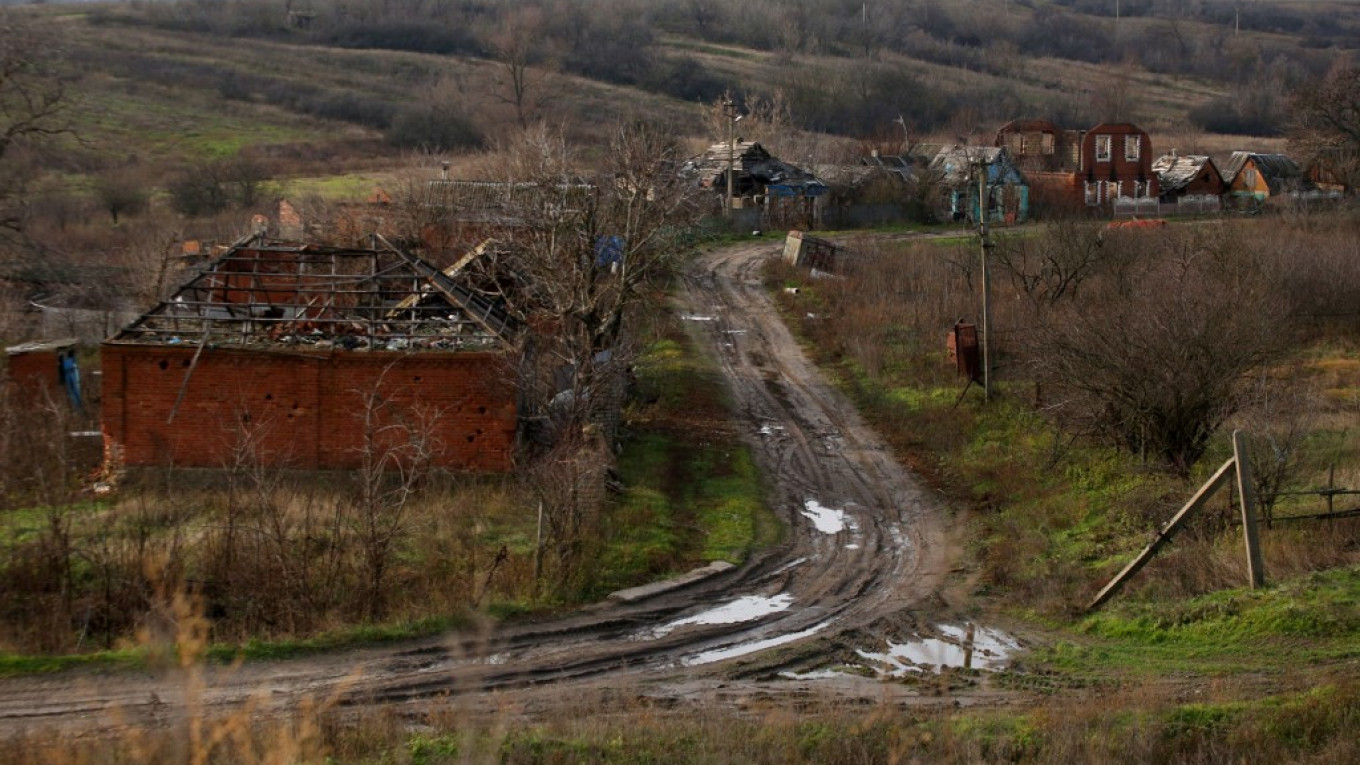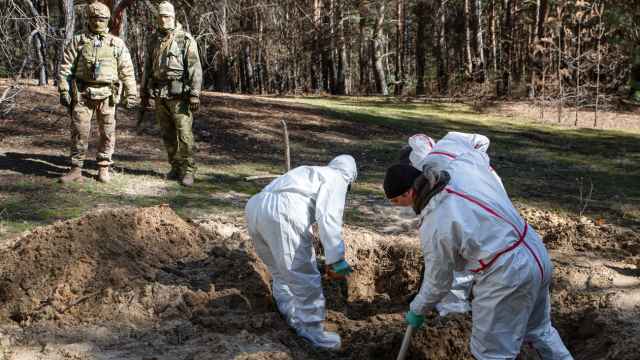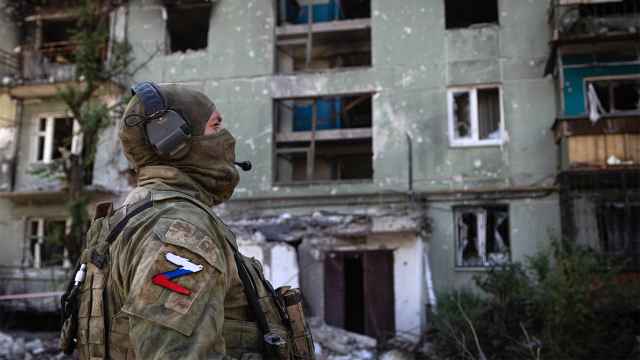As the temperatures plunge in eastern Ukraine, Sergiy Khmil says he has little choice but to use the stacks of ammunition boxes left by the retreating Russian forces as firewood this winter.
Without the wood, Khmil says he will probably freeze amid the ruins of his destroyed village of Kamyanka.
"The most difficult thing is to get enough chopped wood," Khmil explains. "There's a huge queue to get the donated wood from volunteers."
With his home largely destroyed by shelling, Khmil is still hard at work converting his summer kitchen into impromptu winter lodging — now filled with blankets, ammunition crates and a furnace pieced together from Russian shell casings.
"I need to cover the walls with another layer of insulation," Khmil adds while scanning the modest room that he hopes will see him through the winter.
In March, the village was shelled and strafed by helicopters before infantry and tanks stormed the area as Russian forces advanced south from Izyum during the early days of the invasion.
After occupying the area, the Russians settled in — commandeering buildings, looting homes, stealing booze, and driving drunk, according to residents.
"They started to break into garages and houses and partying drunk overnight," says resident Volodymyr Tsybulya, 53, during a break from repairing the roof of his sister's home.
"They used to throw grenades for fun. I came to my place and found my bathroom destroyed by a grenade."
And on it went for months, until a lightning offensive by Ukrainian forces in September crushed the Russian's north-eastern flank, routing its troops and sending them further east in disarray.
In the retreating army's wake, a trail of destroyed villages was left in ruin, including Kamyanka on the outskirts of Izyum in Ukraine's Kharkiv region.
in the weeks since retaking control of the area, Ukrainian officials have scrambled to pick up the pieces, while uncovering mass graves and taking stock of the damage to the formerly occupied territories.
Izyum deputy mayor Mykhaylo Ishyuk says the situation is stark at the onset of winter, with nearly 30 to 40% of the roofs in the city destroyed by the fighting.
A lack of building materials and construction equipment, and a labor shortage have made the much-needed repairs unlikely as the cold sets in. Temperatures are forecast to drop below freezing in the coming days.
The situation in Kamyanka is even worse, he admits. Nearly all the roofs on the 550 homes and buildings in the village have been damaged or outright destroyed.
"We're watching the situation carefully," he adds.
He points to the increase in power cuts following waves of Russian attacks on infrastructure sites across Ukraine that have left Izyum and surrounding areas with less and less electricity and heating.
In Kamyanka, Lyubov Perepelytsya drifts between recounting the horrors experienced during the Russian occupation and sharing her fears about the coming winter.
"They looted literally everything. It's such vile behavior," the 65-year-old resident says through tears as she describes the destruction of her home and the looting of her valuables.
"How could you treat people in such a bad manner?"
Most of the village's 1,200 population have left the area but Perepelytsya and her ailing husband will join a few dozen others who are planning to hunker down for the winter in Kamyanka, come what may.
"I have cried a river. This is our sixth place [during the war]. It looks like the war is chasing us everywhere we go," says Perepelytsya.
"I just don't know how we can make it through this. I don't know."
A Message from The Moscow Times:
Dear readers,
We are facing unprecedented challenges. Russia's Prosecutor General's Office has designated The Moscow Times as an "undesirable" organization, criminalizing our work and putting our staff at risk of prosecution. This follows our earlier unjust labeling as a "foreign agent."
These actions are direct attempts to silence independent journalism in Russia. The authorities claim our work "discredits the decisions of the Russian leadership." We see things differently: we strive to provide accurate, unbiased reporting on Russia.
We, the journalists of The Moscow Times, refuse to be silenced. But to continue our work, we need your help.
Your support, no matter how small, makes a world of difference. If you can, please support us monthly starting from just $2. It's quick to set up, and every contribution makes a significant impact.
By supporting The Moscow Times, you're defending open, independent journalism in the face of repression. Thank you for standing with us.
Remind me later.






